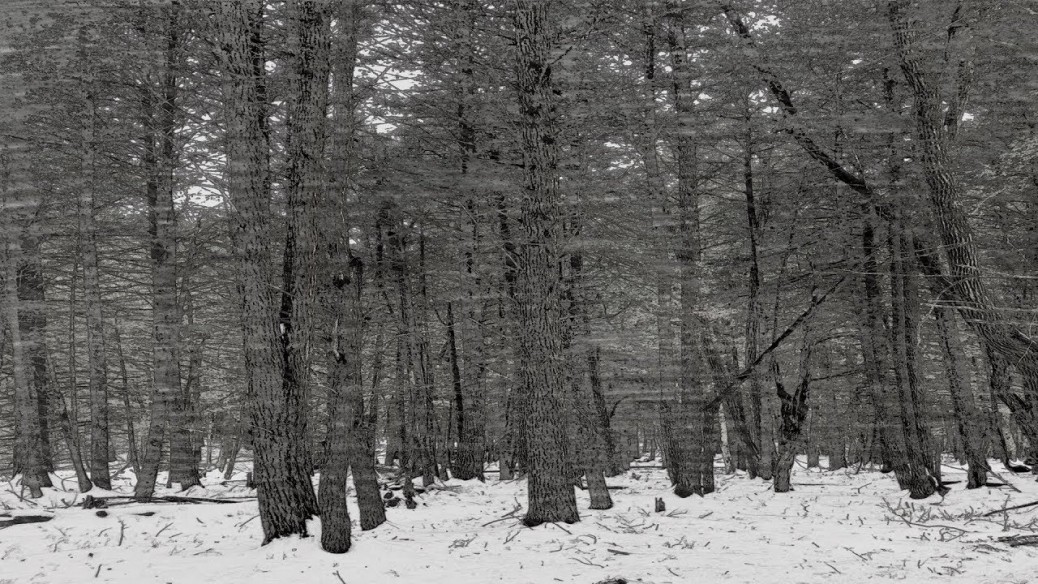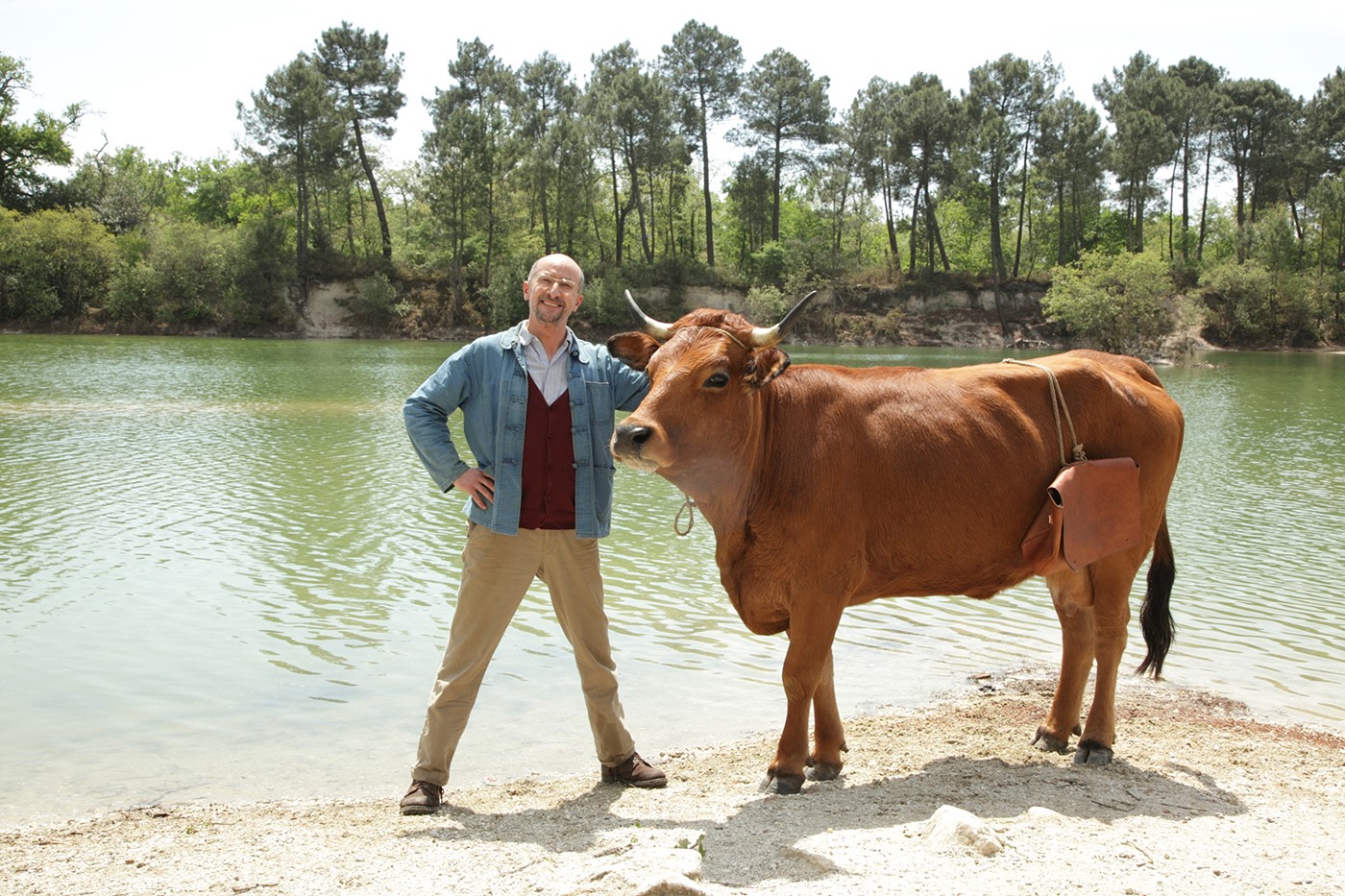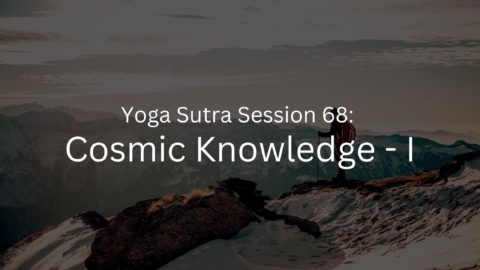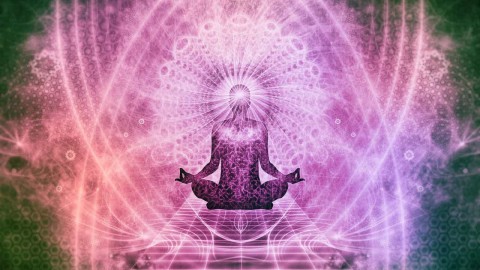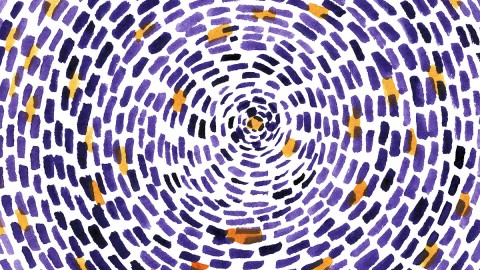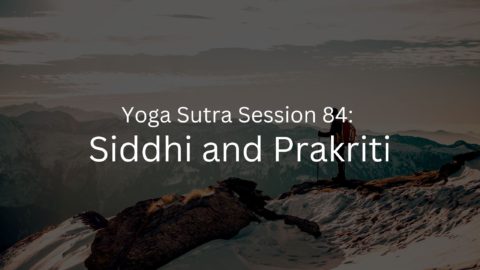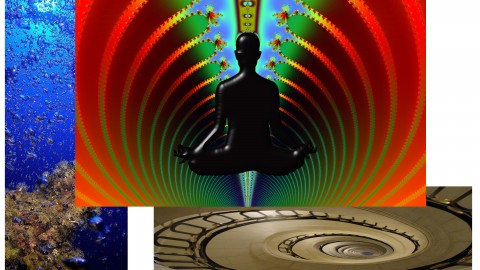One of the sannyasin asked – YOUR STORY, OSHO, ABOUT UNCLE DUDLEY REMINDS ME OF ANOTHER WEST VIRGINIA STORY. SO IT GOES THAT A STRANGER TO THE AREA WAS SEARCHING FOR A CERTAIN PLACE. HE GOT LOST, SO HE STOPPED TO ASK AN OLD FARMER FOR DIRECTION.
THE OLD MAN REPLIED, “GO THREE MILES NORTH, OVER THE BRIDGE, MAKE A RIGHT, GO SIX MILES AHEAD TO A BROKEN-DOWN BARN, TURN LEFT AT THE HICKORY FENCE…. NOPE. THAT WON’T DO IT.”
AGAIN HE TRIED, “FOLLOW THIS HERE ROAD FOR FOUR MILES, OVER THE CREEK AROUND THE BEND BY THE CHESTNUT TREE MAKE A RIGHT, FOLLOW THAT ROAD ABOUT TWO MILES, TURN LEFT BY THE STOP SIGN…. NOPE, WRONG AGAIN.”
TRYING ONCE MORE THE OLD MAN SAID, “HEAD WEST TILL YOU HIT GRUBER’S GENERAL STORE, FOLLOW TO THE RIGHT OVER THE BRIDGE FOR FIVE MILES, TURN RIGHT BY THE YELLOW HOUSE. GO OVER THREE RIDGES TILL YOU COME TO A FORK IN THE ROAD, BEAR RIGHT…. NOPE. THAT WON’T DO.” SO, SAID THE OLD FARMER AFTER SERIOUS CONTEMPLATION, “YOU CAN’T GET THERE FROM HERE.”
Please refer to my blog – Glimpses Of The Unknown – for Uncle Dudley’s story.
Osho replied – I have always loved that story. It is tremendously significant. Let me repeat the last part. He said, “Sorry, you can’t get there from here.”
In fact from here you can get only, to here. From here there is no way to go there.
From here always you can get to here – from here to here is the only possibility.
From here there is no way to go there. From now you get to now – again and again – because it is always present. From today you never get to tomorrow.
Remember, from today you come back to today again and again and again – because there is no tomorrow. Today remains; it is an eternity. Now is an eternity, and here is the only space.
The man may have been drunk, but sometimes drunkards utter tremendously meaningful truths. Why? Because drunkards can never remain in the Aristotelian logic. That may be the appeal of alcohol, of drugs; it relaxes you. Your head which is divided by Aristotle – between here and there, between now and then, between today and tomorrow – that division disappears. You settle deeply in you. You regain your lost childhood when everything was everything else and everything was meeting and merging into everything else, and there were no boundaries.
Watch a child. When he gets up in the morning sometimes he may be crying because he has lost a toy in the dream. In fact there is no boundary between dream and day – there is no boundary between dream and reality. Everything meets and merges into each other. A child lives in a totally different world – the world which is one, the world of the mystics, the world of the non-dualists, advaitans, the world where there are no distinctions, where things are not divided against each other.
That old man may have been drunk that day. Otherwise, when you are in your senses you cannot say such a thing. He tried hard. He tried hard to catch hold of his Aristotelian mind. He tried hard, to get into the old categories which have become dim under alcohol and its influence. He tried hard to find a way but again and again he got lost. Finally he said it is not possible; “Sorry, you cannot go there from here!”
This conclusion of the anecdote would be loved by Zen Masters. They will see the point, because they are also drunkards – drunk with God. Again the same happens categories disappear, distinctions disappear. Says Lao Tzu, “Everybody is clear headed, only I am muddled.” Lao Tzu and muddled? Says Lao Tzu.
“Everybody knows what is what only I don’t know. Everybody is wise, only I am ignorant.” The very word “Lao Tzu” means either “the old fellow” or “the old idiot.” Maybe enemies were calling him Lao Tzu and meaning the old idiot and friends were calling him Lao Tzu meaning the old fellow; but he was both.
Remember, there is nowhere to go. You carry your here and now around you.
Wherever you go it is always here; wherever you go it is always now. Here and now are the eternities, and they are not two. In language we have become accustomed to calling them two, because in language Einstein has still to be introduced. Einstein has proved it now as a scientific fact that space and time are not two. He has coined a new word “spatio-time” to make them one. If that is right then here and now cannot be two. “Here-now” is the word of the future.
Sooner or later, when Einstein is absorbed into languages these words will lose distinction. Here-now.
The story is beautiful. Sometimes in small anecdotes, in folklore, in stories of the people, much wisdom is hidden. Don’t just laugh at them. Sometimes through your laughing you may be trying to escape from something which can make you uncomfortable. Nobody writes these stories; they grow like trees. Through centuries a thousand and one minds work on them. They go on changing and being refined continuously. They are part of human heritage. Whenever a joke is told, don’t just laugh and forget it. Laugh, perfectly true and right, absolutely okay, but don’t miss the joke in the laughter. It may have something of tremendous value hidden in it. If you can see it, your own consciousness will be enriched.
Question to Osho – RECENTLY I HAD A GLIMPSE OF EMPTINESS. IN MY WORK I COMMUNICATE THROUGH IMAGES JUXTAPOSED STRANGELY. WILL THE CLEARING PROCESS ALLOW THE IMAGE TO RISE ANEW, OR AS I VANISH WILL THE WORK VANISH?
It depends. If your work is just a profession, it can vanish when you vanish.
When your ego disappears into deep meditation your profession can also disappear, but if it is not a profession but a vocation, if it is not just a job but a calling, if it is not just imposed on you by yourself or by others but has deeper sources within you, deeper springs to feed it and nourish it, then when the ego disappears, your work for the first time becomes your love; then you become more creative. Tremendous energy is released when the ego disappears because the ego is carrying much of your energy – wasting much of your energy. Just watch for twenty-four hours. Your ego is taking so much energy – in anger, in pride, in trips. So much energy is wasted. When the ego disappears, all that energy becomes available to your work, to you.
It can become creative, but then the creativity has a very different quality, a different taste and savor. Then it is not as if you are creating; it is as if you have become a vehicle, as if you are possessed by something greater than you, as if existence has made you an instrument, a medium. You have become a flute and now God sings. You are just a hollow, a passage; you allow the whole to flow through you. If there is any fault, it is yours. If there is any beauty, it is God’s. If you err, you err. If something is really given birth through you, you feel grateful.
Then all mistakes are yours because then you must have hindered in some way.
Blocked, you must not have been totally empty. The passage was not clear for God to flow through. But whenever something beautiful happens – a painting, a poetry, a dance, or whatsoever – you feel deeply grateful. A prayer comes to your heart; a thankfulness comes to your heart.
Then your creativity has a very quiet, calm quality to it. Right now, with the ego, there is much turmoil and tumult. With the ego the creativity is nothing much but the noise that you are a creator. The poetry may not be worth, but the poet goes on shouting from the housetops. The painting may not be of any value, may not have anything original to it, may be just an imitation, a fake; but the painter goes on carrying his head high in pride. It is very noisy with the ego. When the ego disappears, you flow in many ways, but everything becomes very silent and quiet.
I have heard: Someone once asked Professor Charles Townsend Copeland of Harvard why he lived on the top floor of Hollis Hall in his small, dusty old rooms. “I shall always live here,” he answered, “It is the only place in Cambridge where God alone is above me.” Then, after a pause, he said, “He is busy, but he is quiet.”
Yes, God is busy, tremendously busy – spread all over existence. Just see how many things he is doing together, simultaneously. This infinite expanse is his.
You must have seen pictures of Hindu gods with thousands of hands. They are very symbolic. They show that he cannot work with two hands. Two hands won’t be enough. The work is so vast. You must have seen Hindu gods with three heads looking in three dimensions – because if he has only one head then what will happen to his back? He has to look in all directions. He has to be busy everywhere, with a thousand and one hands… but so quiet – not even claiming, “I have done so much.”
And you do a small thing – you just arrange a few words and you think it is a poem – and now arises the pride and you go mad. And you start claiming that you have created something. Remember, only mediocres claim. The real creators never claim, because the real creators become so humble, they understand that it is none of their own. In fact they have only been vehicles.
When Rabindranath, a great poet, used to have moods, was possessed, he would go in a room, close his door. For a few days he will not eat, he will not come out.
He will just silently listen to the voice of God. He will purify himself so that he can become the right vehicle. He will cry and weep and he will go on writing.
And whenever anybody asked he would always say, “Whatsoever is beautiful is not mine, and whatsoever is ordinary must be mine. I must have added it.”
When Coleridge died, almost forty thousand incomplete pieces of poetry and stories were found – forty thousand. Almost all his life his friends were saying, “Why don’t you complete them?” He said, “How can I complete it? He starts; he has to complete – whenever he wills. I am helpless. One day he possessed me and then a few lines came – and only one line is missing, but I am not going to add it because that will become destructive to it. Seven lines from the sky and one line from the earth? No, it will cut the wings. I will wait. If he is not in a hurry, who am I to worry about it?” This is a real creator.
A real creator is not a creator at all. A real creator becomes instrumental; he is possessed of the great forces. Wild forces of God possess him, wild seas and skies of God possess him. He becomes a mouthpiece. He utters, but the words are not his. He paints, but the colors are not his. He sings, but the sounds are not his. He dances, but he dances as if possessed – somebody else dancing through him.
So it depends. The question is if your ego disappears into meditation what will happen to your work. If it is a profession it will disappear, and it is good that it disappears. Nobody should be a professional. Your work should be your love; otherwise the work becomes destructive. Then somehow you drag it and your whole life becomes dull. Your whole life becomes empty in a negative sense, unfulfilled. You are doing something which you never wanted to do in the first place. It is violent. It is suicidal – you are killing yourself slowly, poisoning your own system. Nobody should be a professional. Your work should be your love; it should be your prayer. It should be your religion, not your profession.
There should be a passion flowing between you and your work. When really you have found your vocation, it is a love affair. It is not that you have to do it. It is not that you have to force yourself to do it. Suddenly you do it in a totally different way you had not known before. Your steps have a different dance, your heart goes on humming. Your whole system functions for the first time at the optimum. It is a fulfillment. Through it you will find your being – it will become a mirror; it will reflect you. Whatsoever it is – a small thing.
It is not a question that only great things become vocations no. A small thing.
You may be making toys for children, or making shoes, or weaving cloth – or whatsoever.
It doesn’t matter what it is, but if you love it, if you have fallen in love with it; if you are flowing with no reservation, if you are not withholding yourself, if you are not dragging – dancingly moving into it – it will cleanse you, it will purify you. Your thinking by and by will disappear. It will be a silent music, and by and by you will feel that it is not only work, it is your being. Each step fulfilled, something in you flowers.
And richest is the man who has found his vocation. And richest is the man who starts feeling a fulfillment through his work. Then the whole life becomes a worship.
Work should be a worship, but that’s possible only when your being starts to be more meditative. Through meditation you will gather courage. Through meditation you will gather courage to throw the profession and to move towards the vocation.
Maybe through the profession you could have been rich, but that richness would have been from the outside.
Through the vocation you may remain poor; you may not be so rich. The society may not pay for it because the society has its own ends.
You may be writing poetry and nobody may be purchasing them, because the society does not need poetry. It can afford – it is foolish enough – it can afford to be without poetry. It pays if you are preparing something for war, for violence. If you are doing something for love – poetry is something for love, people will be more loving – the society doesn’t bother. The society needs soldiers, the society needs bombs, the society needs weapons not worship.
The society may not pay you, you may remain poor, but I tell you that poverty, that risk, is worth taking because inner riches will be overflowing towards you.
You may die poor as far as your outside is concerned, but you will die an emperor as far as your inner being is concerned – and ultimately only that is of any value.
Tags: It Is Always Present Patanjali
